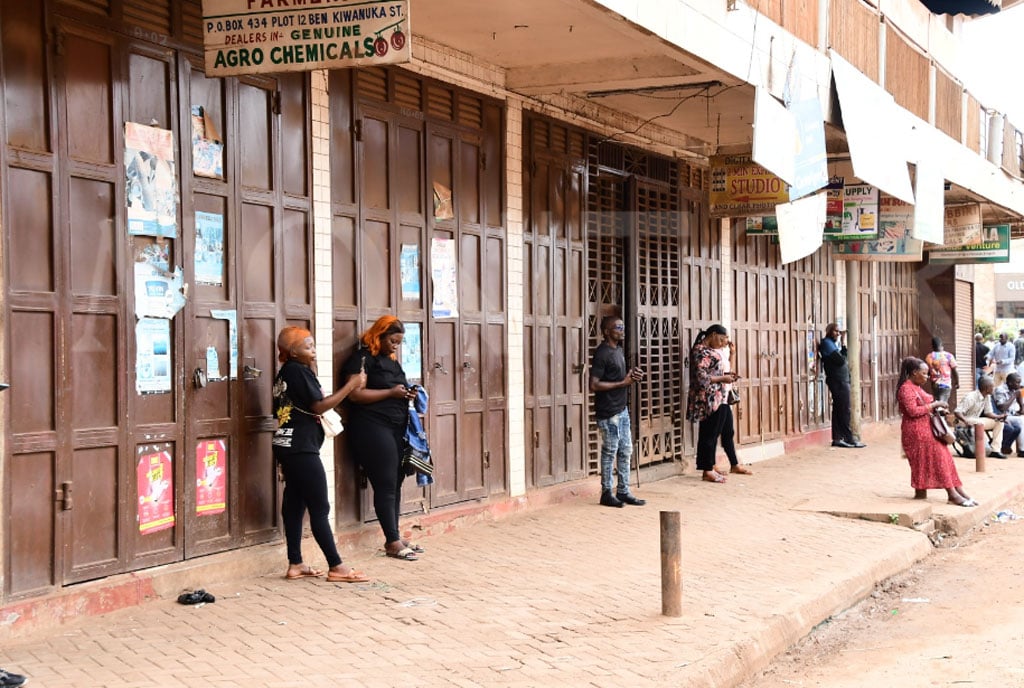Nadduli faults UMSC on constitution

Hajj Abdul Nadduli, chairperson of Uganda Muslim Supreme Council executive committee. Photo| File
What you need to know:
- The UMSC executive committee chairperson claims the body’s general assembly did not approve the proposed amendments to the constitution.
The chairperson of Uganda Muslim Supreme Council (UMSC) executive committee, Hajj Abdul Nadduli, has faulted management headed by Mufti Sheikh Shaban Ramadhan Mubajje for sidelining the general assembly while making amendments to the body’s constitution.
Hajj Nadduli said management should have tabled the matter before the general assembly, which is the top decision making organ of UMSC.
According to article 23 of the UMSC constitution, for any amendments to be made, the general assembly has to first pass a resolution supported by at least two thirds of all the members of the assembly.
Under the same provision, the notice convening the meeting has to state the fact and general nature of the proposed amendments.
Daily Monitor has learnt that the general assembly, which is supposed to sit at least once every year, last convened on February 28 last year .
“We had prior deliberations and proposed amendments to be presented to the general assembly for approval, but there was no update on the matter and we were only informed that the process was halted due to Covid -19 pandemic preventive measures,” he said last week.
“I am surprised to learn through the media that there is another committee which came up with a draft constitution. Who gave it [committee] that mandate?” Hajj Nadduli asked.
Article 23 (6) of UMSC constitution also stipulates that there has to a part time legal adviser to the supreme council appointed by the executive committee from among the Muslim practicing lawyers of Uganda. However, that was also not considered.
A six-member team led by Dr Edris Kasenene, the former UMSC secretary, prepared the draft constitution, currently being discussed by regional Muslim councils .
However, Mr Ramadhan Mugalu, the UMSC secretary general, defended the ongoing constitutional review, saying it was endorsed by the general assembly during one of its sittings in 2015.
Response
“The general assembly sat and subsequently made three resolutions which include extension of the term for the executive committee from five to 10 years, review of the constitution and organising fresh elections,” he said.
Mr Mugalu said since then, they have been gathering views from Muslims to be incorporated in the draft constitution, which is under review.
“What we have is a working document, not a draft constitution as some people call it. We have already disseminated its content to all 80 Muslim districts and nine Muslim regions to gather more public opinions and comments which will be considered by the Constitution Review Commission before tabling the same before the general assembly for approval,” he said.
If the draft constitution is ratified, Mufti Mubajje will be eligible to occupy office for another five years when his tenure expires in 2025.
Under the current constitution, Sheikh Mubajje, 66, who has been in office since December 2000, is supposed to relinquish office when he clocks 70 years in 2025.
What UMSC constitution amendments entail
The draft constitution, which Daily Monitor has seen, indicates that the Mufti should be aged at least 55 and can serve one term of 10 years until he clocks 75. The new amendments also legitimise two deputies, up from one that the current 1987 constitution recognises. Already, Sheikh Mubajje appointed Sheikh Abdul Ssemamba and Sheikh Ali Waiswa as his deputies.
There is a proposal to have the Mufti elected by only 21 members of Majlis Al-Ulama (college of learned sheikhs), not the 230-member general assembly as indicated in the current constitution. In the current constitution, the Mufti only chairs the management committee and the Majlis Al-Ulama.
There is a proposal to allow him to chair the executive committee, which makes standing orders that govern the proceedings of the assembly and other organs of UMSC. Sheikh Mubajje has on several occasions said he wanted to serve as Mufti for a short time after ushering in a new constitution, but continuous court and internal Muslim leadership wrangles have forced him to stay longer in office.





